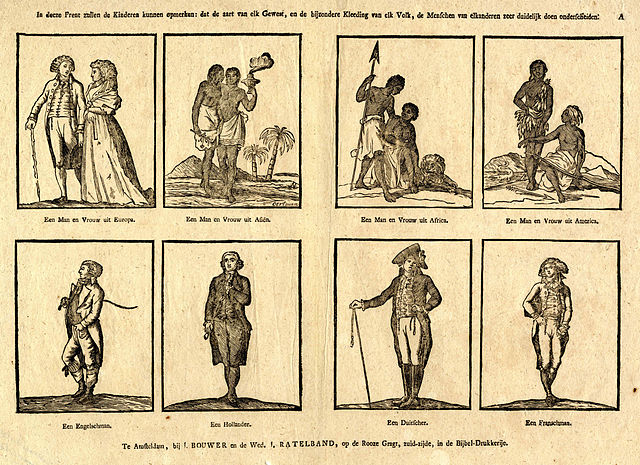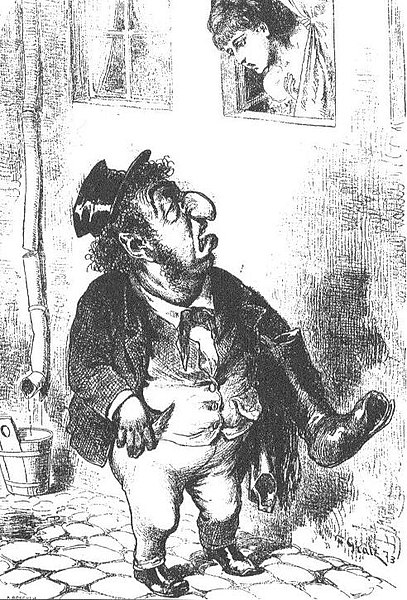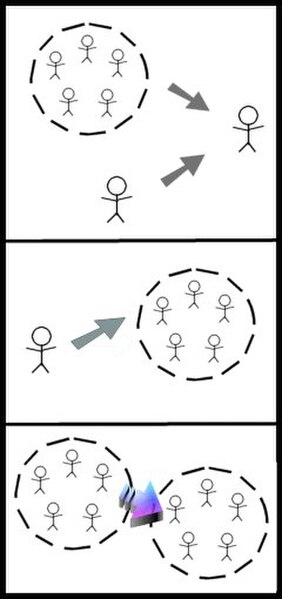In social psychology, a stereotype is a generalized belief about a particular category of people. It is an expectation that people might have about every person of a particular group. The type of expectation can vary; it can be, for example, an expectation about the group's personality, preferences, appearance or ability. Stereotypes are often overgeneralized, inaccurate, and resistant to new information. A stereotype does not necessarily need to be a negative assumption. They may be positive, neutral, or negative.
An 18th-century Dutch engraving of the peoples of the world
Police officers buying doughnuts and coffee, an example of perceived stereotypical behavior in North America
An antisemitic 1873 caricature depicting the stereotypical physical features of a Jewish male
A magazine feature from Beauty Parade from March 1952 stereotyping women drivers. It features Bettie Page as the model.
Social psychology
is the scientific study of how thoughts, feelings, and behaviors are influenced by the actual, imagined, or implied presence of others. Social psychologists typically explain human behavior as a result of the relationship between mental states and social situations, studying the social conditions under which thoughts, feelings, and behaviors occur, and how these variables influence social interactions.
The Elaboration Likelihood Model is an influential model of persuasion
Social psychologists study interactions within groups, and between both groups and individuals.






